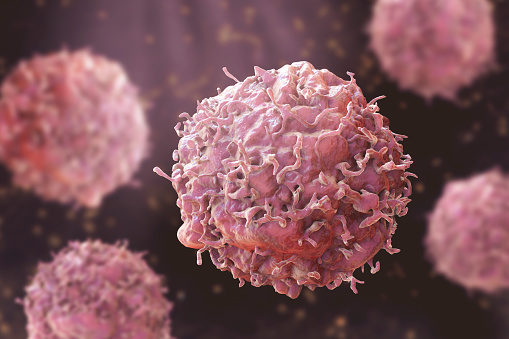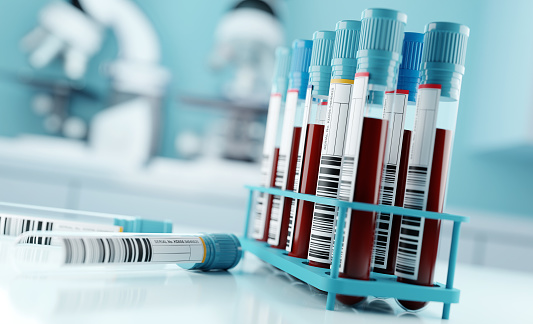
A major breakthrough could allow cancer to be detected seven years earlier than it is today using a simple blood test.
Researchers hope in future it could not only allow earlier detection and treatment, but could help prevent the disease altogether.
Two Cancer Research UK-funded studies have discovered proteins in the blood that could warn people of cancer long before current diagnosis allows.
Oxford University scientists identified 618 proteins linked to 19 different types of cancer, including 107 proteins in a group of people whose blood was collected at least seven years before diagnosis.
The research team have discovered the proteins could be involved at the very earliest stages of cancer, where it could be prevented and could be used to detect cancer much earlier than is currently possible.
The team say the breakthrough could help treat the disease at a much earlier stage – or even prevent it altogether.
The researchers used a powerful technique called proteomics which allows them to analyse a large set of proteins in tissue samples at a single point in time.

This provides an insight into how they interact with each other and find any important differences in proteins between different tissue samples.
In the first study, scientists analysed blood samples taken from more than 44,000 British people, including more than 4,900 people who were afterwards diagnosed with cancer.
Using proteomics, the researchers analysed a set of 1,463 proteins from a single sample of blood from each person.
The team compared the proteins of people who did and did not go on to develop cancer to look for differences between them and find out which ones were linked to the risk of cancer.
The researchers also identified 182 proteins that differed in the blood three years before a cancer diagnosis took place.
Senior author of both studies Professor Ruth Travis said: ‘We now have technology that can look at thousands of proteins across thousands of cancer cases, identifying which proteins have a role in the development of specific cancers, and which might have effects that are common to multiple cancer types.’
In the second study, the team looked at genetic data from more than 300,000 cancer cases to do a ‘deep dive’ into which blood proteins were involved in cancer development and could be targeted by new treatments.
They found 40 proteins in the blood that influenced someone’s risk of getting nine different types of cancer.
While altering the proteins may increase or decrease the chances of someone developing cancer, the researchers also found that in some cases this may lead to unintended side-effects.
Dr Keren Papier, joint first author of the first study, said: ‘To save more lives from cancer, we need to better understand what happens at the earliest stages of the disease.
‘Data from thousands of people with cancer has revealed really exciting insights into how the proteins in our blood can affect our risk of cancer.
‘Now we need to study these proteins in depth to see which ones could be reliably used for prevention.’
However, the team says further research is needed to find out the exact role the proteins are the most reliable ones to test for, what tests could be developed to detect the proteins, and which drugs could target the proteins.

Dr Karl Smith-Byrne, senior author of the first paper and first author of the second study, said: ‘We’ve predicted how the body might respond to drugs that target specific proteins, including many potential side-effects.
‘Before any clinical trials take place, we have some early indications of which proteins we might avoid targeting because of unintended side-effects.’
More Trending
‘This research brings us closer to being able to prevent cancer with targeted drugs – once thought impossible but now much more attainable.’
Dr Iain Foulkes, executive director of research and innovation at Cancer Research UK, said: ‘That means intensive, painstaking research to find the molecular signals we should pay closest attention to.
‘Discoveries from this research are the crucial first step towards offering preventative therapies which is the ultimate route for giving people longer, better lives, free from the fear of cancer.’
The findings were published in the journal Nature Communications.
MORE: Tottenham must lose their small-club mentality and look to learn from Arsenal
MORE: Mum’s lungs ‘popped like hot fried chicken’ because she vaped so much
MORE: ‘Excessive’ amount of salt found in these popular kids’ menus












